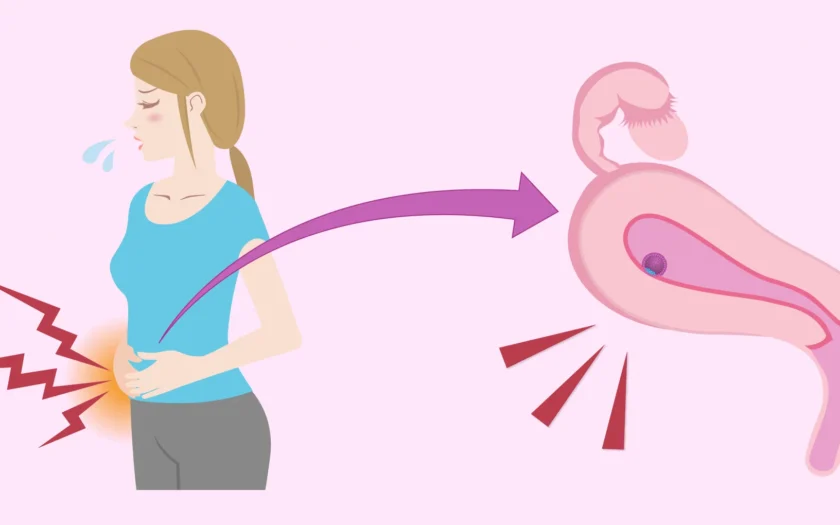If you are pregnant or planning a pregnancy, it’s crucial to be mindful of your diet and the supplements you take. Certain vitamins and supplements can support your health and the development of your baby, while others may pose risks or be ineffective. For instance, folic acid is essential for preventing neural tube defects, whereas excessive vitamin A can be harmful.
Always consult with your midwife, doctor, or a registered dietitian before starting any new vitamins or supplements. They can provide personalized advice based on your specific health needs and ensure you make safe and beneficial choices for both you and your baby.
Essential Nutrients for a Healthy Pregnancy: What Your Body Needs
During pregnancy, maintaining a well-balanced diet is essential for the health and development of both you and your baby. Understanding which nutrients are crucial and how they contribute to a healthy pregnancy can help ensure you meet both your needs and those of your growing baby. This guide explores the essential nutrients required and how to incorporate them into your daily diet.Your body requires a variety of nutrients to support both your health and your baby’s development, including:
- carbohydrates. Provide energy and help with the growth of the baby’s tissues;
- fats. Essential for brain development and hormone production;
- fiber. Supports digestive health and helps prevent constipation;
- protein. Vital for the development of the baby’s tissues and organs;
- vitamins and Minerals. Crucial for various bodily functions, including bone health and immune support.
Although you don’t need to eat for two, it’s important to focus on consuming nutrient-dense foods to meet both your and your baby’s nutritional needs. A balanced diet, including a variety of fruits, vegetables, whole grains, lean proteins, and healthy fats, can help ensure you get the essential nutrients needed for a healthy pregnancy.
Understanding Vitamins, Minerals, and Supplements: Essential Components for Health
Vitamins and minerals are essential nutrients that your body requires in small amounts to function optimally. While vitamin D is produced by your skin when exposed to sunlight, most other vitamins and minerals must be obtained through your diet.
During pregnancy, your body needs increased amounts of certain nutrients to support both your health and your baby’s development:
- calcium and Vitamin D. Crucial for the development of your baby’s bones and teeth;
- folate (Folic Acid). Helps prevent neural tube defects, which affect the brain and spinal cord;
- Iodine. Essential for the proper development of your baby’s brain and nervous system;
- iron. Supports the formation of red blood cells and helps prevent anemia;
- omega-3 Fatty Acids. Important for healthy brain, nerve, and eye development in your baby;
- protein. Necessary for building new body tissues for both you and your baby.
Dietary supplements can help provide these essential nutrients if they are not adequately obtained through your diet. However, it’s important to consult with your healthcare provider before starting any new supplements to ensure they meet your specific needs and are safe for your pregnancy.
Should You Take Supplements During Pregnancy? What You Need to Know
Maintaining a healthy diet is essential for providing the necessary nutrients during pregnancy. However, dietary supplements can help fill gaps in your diet and ensure you meet your increased nutritional needs. In Australia, it is generally recommended for all pregnant women to take specific supplements to support a healthy pregnancy:
- folic Acid. To help prevent neural tube defects in the developing baby;
- lodine. Essential for proper brain and nervous system development;
- vitamin D. Important for bone health and to support the baby’s development.
While supplements can be beneficial, they should complement a balanced diet rather than replace it. Always consult with your healthcare provider before starting any new supplements to ensure they are appropriate for your individual needs and pregnancy.
The Importance of Folic Acid During Pregnancy: Benefits and Recommendations
Folate is naturally present in green leafy vegetables, but it is also commonly added to foods such as bread and breakfast cereals in the form of folic acid. In Australia and New Zealand, folic acid is included in all bread-making flour, except for organic varieties. However, to ensure you receive adequate folic acid, especially if you’re planning a pregnancy, it’s recommended to take a daily folic acid supplement.
Start taking at least 0.5 mg of folic acid daily at least one month before conception. This is important because a baby’s rapid growth during the early weeks of pregnancy often occurs before you may even realize you are pregnant. Continuing the supplement for the first three months of pregnancy helps reduce the risk of neural tube defects, such as spina bifida.
In some cases, your doctor may advise a higher dose of folic acid (5 mg) if you have specific conditions or risk factors, such as diabetes, obesity, epilepsy (if you take anticonvulsant medication), a family history of neural tube defects, or issues with nutrient absorption. Always follow your healthcare provider’s recommendations to ensure optimal health for you and your baby.
Iodine and Pregnancy: Essential for Your Baby’s Development
Iodine is crucial for your baby’s brain development and overall growth. Adequate iodine intake helps ensure proper cognitive and neurological development. It is recommended to take an iodine supplement of 150 mcg daily before conception, throughout pregnancy, and during breastfeeding. This is particularly important as iodine deficiency can lead to developmental issues and thyroid problems in both you and your baby. In areas where iodine is added to table salt or foods, you may still need a supplement to meet the increased demands during pregnancy. Always consult with your healthcare provider to tailor iodine supplementation to your individual needs and to ensure both you and your baby receive the necessary nutrients for optimal health.
Vitamin D During Pregnancy: Why It Matters and How to Get Enough
Vitamin D plays a crucial role in helping your body absorb and utilize calcium, which is essential for the development of your baby’s bones and teeth. During pregnancy, it’s recommended to take a daily vitamin D supplement of 400 to 600 IU to support both your health and your baby’s growth. Adequate vitamin D levels help maintain bone strength and immune function. If you have limited sun exposure or follow a diet low in vitamin D, supplementation becomes even more important. Consult your healthcare provider to determine the appropriate dosage based on your specific needs and circumstances.
Iron and Pregnancy: Why It’s Essential and How to Meet Your Needs
During your second and third trimesters, your body’s need for iron increases significantly to support your growing baby and expand blood volume. Iron is crucial for producing hemoglobin, which helps transport oxygen to both you and your baby.
Consult your midwife or doctor to determine if you need iron supplements, as not all pregnancies require additional iron. Your healthcare provider will assess your iron levels through blood tests and recommend supplements if necessary to prevent iron deficiency anemia and ensure optimal health for both you and your baby.
Calcium During Pregnancy: Importance, Sources, and Recommendation
Calcium is vital during pregnancy for the development of your baby’s bones and teeth. Adequate calcium intake supports your baby’s growth and helps maintain your own bone health. However, additional calcium supplementation beyond the normal dietary intake is generally not necessary, as your body adjusts to use calcium more efficiently during pregnancy.
Ensure you get enough calcium through dietary sources such as dairy products, fortified plant-based milks, leafy green vegetables, and almonds. If you have specific concerns about your calcium levels or dietary intake, consult with your healthcare provider for personalized advice. They can help determine if additional supplementation is needed based on your individual health and dietary needs.
Multivitamins in Pregnancy: Do You Need Them and What to Consider
A multivitamin is a supplement containing a blend of various vitamins and minerals, often in tablet form. Some multivitamins are specially formulated for pregnant women to help meet their increased nutritional needs. These prenatal multivitamins typically include essential nutrients like folic acid, iron, and calcium.
However, the composition of multivitamins can vary, so it’s crucial to read the label to ensure you are getting the right balance of nutrients. While prenatal multivitamins can help fill nutritional gaps, they should not replace a balanced diet. Consuming a variety of healthy foods is essential for both your health and your baby’s development.
If you are pregnant, always choose multivitamins specifically designed for pregnancy and consult with your healthcare provider before starting any new supplement regimen to ensure it meets your individual needs.
Other Essential Vitamins During Pregnancy: What You Need to Know
Your body requires only small amounts of each nutrient, and consuming them in excessive amounts can sometimes be harmful. High doses of certain vitamins can pose risks, especially during pregnancy. For example:
- vitamin A. Excessive intake can increase the risk of birth defects. It’s best to get vitamin A from foods such as meat, fish, leafy green vegetables, and dairy products. Avoid taking high-dose supplements or consuming very high vitamin A foods like liver and pâté, as these may increase the risk of harm;
- vitamin C. While generally safe, it’s best to get your vitamin C from a balanced diet rich in fruits and vegetables. Vitamin C is important for overall health and enhances the absorption of iron from your diet;
- vitamin E. High doses of vitamin E supplements are not recommended, as they can pose potential risks during pregnancy.
It’s important to focus on obtaining these nutrients through a varied and balanced diet rather than relying on supplements, unless specifically advised by your healthcare provider. Always consult with your healthcare provider before taking any high-dose vitamin supplements to ensure they are safe and necessary for your individual health needs.
Additional Dietary Supplements During Pregnancy: What You Might Need to Consider
During pregnancy, your nutritional needs may extend beyond the basics to ensure both you and your baby stay healthy. In some cases, your healthcare provider may recommend additional dietary supplements tailored to address specific needs or deficiencies. Understanding which supplements might be necessary and why can help you make informed decisions about your prenatal care.
Your midwife or doctor may recommend additional supplements based on your specific health needs and dietary habits. Some common recommendations include:
- vitamin B12. Essential for the development of your baby’s nervous system, especially if you follow a vegetarian or vegan diet where B12 may be lacking;
- iron. If you have iron-deficiency anemia, an iron supplement can help ensure adequate red blood cell production and prevent fatigue;
- calcium. If you are at risk of hypertension (high blood pressure) or have low dietary calcium intake, a calcium supplement may be beneficial for maintaining bone health and regulating blood pressure;
- omega-3 Fatty Acids. These supplements are recommended if your dietary intake is low, as they support brain development and may reduce the risk of premature birth.
Always consult with your healthcare provider before starting any new supplements to ensure they are appropriate for your individual health needs and to avoid any potential interactions with other medications or conditions.
Essential Steps Before Starting a Dietary Supplement During Pregnancy
Although vitamins and dietary supplements are generally considered low-risk, they are not as strictly regulated as prescription medications. This can lead to variations in quality and potency between products. Supplements can also have side effects or interact with other medications, so it’s important to approach them with caution. Always consult with your healthcare provider before starting any new vitamins or supplements during pregnancy to ensure they are safe and appropriate for your specific needs. This helps prevent potential adverse effects and ensures that your supplement regimen supports both your health and your baby’s development.



